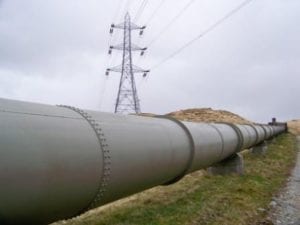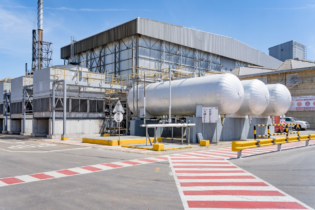Bulk infrastructure is now part of the targets and actions for Vision 2030, which are the guiding principles of the National Water Resources Strategy 2 (NWRS2).
Addressing Parliament during her Budget Vote 2015/16 last week the Minister of Water and Sanitation, Nomvula Mokonyane, stressed this fact. “Pursuant to our mandate, we continue to support the building of water distribution infrastructure through this programme to the total amount of over R6 billion in the 2015/16 financial year.” These projects support local government in bringing water from the source closer to the people such as in the Presidential Intervention Project (PIP) for Mthatha Town in King Sabata Dalindyebo Local Municipality in the Eastern Cape; the bulk water supply for the Moses Kotane and Rustenburg in the North-West; Jozini-Ingwavuma water project for the Jozini Local Municipality in Kwa-Zulu Natal. The inter-agency Programme Management Office (IPMO), in line with the PICC project management model has been established regarding the Mzimvubu project. Its purpose is to formalise the governance of the socio-economic revitalisation of the Mzimvubu River basin and surrounding areas.Preliminary estimates indicate that the project will cost R20 billion for building a dam at Ntabelanga site, the Laleni hydropower scheme, bulk water infrastructure, infield irrigation infrastructure, access roads, and the costs of land acquisition and catchment rehabilitation.
The minister added that the Lesotho Highlands Water Project Phase II Water Transfer started in earnest since they gave the directive for the work to commence in December 2014. “Government’s priority is ensuring that the development of this project is in the best interest of the people of the Kingdom of Lesotho and South Africa. It is government’s intent to ensure that the project creates a sustainable legacy in the form of capacity of local businesses, skills development, local infrastructure, and local ability to manage the infrastructure into the future,” concluded the minister.







